The art of lie detection [Year in Review, Part 3]
by HeadsNo2
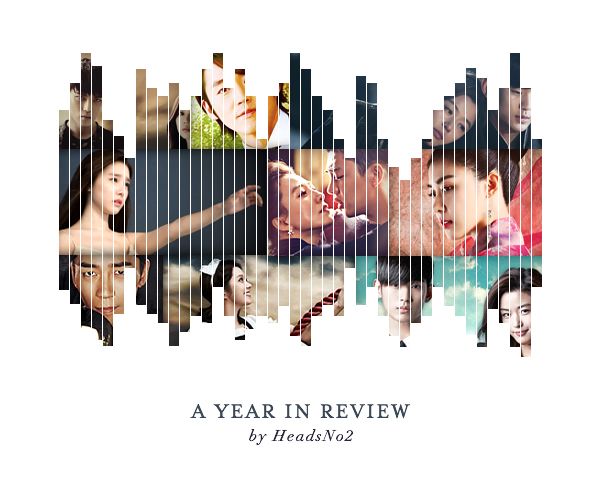
![]()
I think I echo the entire human race when I say that there was something in the air this year that made the days go by faster. What other explanation could there be for the fact that it’s December again? Why does the end of the year have to be once a year? Maybe we should execute a search and rescue mission for all the time we lost—that stuff’s got to go somewhere, right? I’ll try checking the junk drawer.
If there seems to be little rhyme or reason in the review choices this year, it’s because there isn’t. I mostly just picked at random, hoping to break the pattern of expectation versus reality caused by following teams from dramas I liked to dramas I usually don’t like. But with the fast turnout rate required by the insatiable beast that is dramaland, it turns out that avoiding a production team’s reunion would only be possible by stopping my drama intake entirely.
And since that’s not a viable option in any universe/alternate timeline, the solution to the inevitable ebb and flow of drama watching remains the same. I’ve just got to pony up and take ‘em as they come, which is what it means to consume entertainment. Or is it? Why take my word for it anyway?
Ooh, I’ve got an idea! Let’s play a game. You decide which of two statements is true, and which is a liar-liar-pants-on-fire falsehood. Good luck, and god speed!
SONG OF THE DAY
Triangle OST – Jaejoong – “우연 (Coincidence)” [ Download ]
Audio clip: Adobe Flash Player (version 9 or above) is required to play this audio clip. Download the latest version here. You also need to have JavaScript enabled in your browser.
Empress Ki
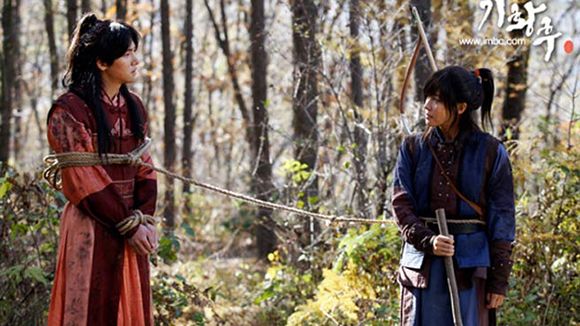
It’s hard to believe that blockbuster sageuk Empress Ki started its fifty-episode run before last year’s holiday review extravaganza even began (seriously, where did the time go?) yet here we are, looking back at six months of tumultuous romances, sumptuous costumes, arresting performances, and just a light smattering of paint-by-numbers political intrigue to keep the wheels greased and moving.
And the formula worked—in a year with pretty dismal numbers overall, Empress Ki surpassed the elusive twenty percent mark early in its run and was close enough to taste the thirty percent milestone by the time the finale aired. It was a rousing success both commercially and critically, which wasn’t necessarily unexpected coming from the writers who brought us History of the Salaryman and the PD who brought us Dr. Jin—…wait, what?
Yes, the director who proved himself incapable of focusing a camera or our attention in 2012 was handed a star-studded cast, a primetime slot, and a boatload of money by MBC to do as he liked for nearly half a year. And you know what? The end result was actually good. Though I’d bet money that the sudden show of competence wasn’t so much proof of miracles as it was the result of having two directors working in tandem, it proves that MBC knows how to make commercially sound decisions when it’s not actively feeding its decade-long obsession with Dae Jang Geum. (Seriously, guys. Give it up already.)
With a commanding performance by Ha Ji-won as the Goryeo woman who would later become the titular empress of Yuan, Ki looked at the historical blanks in her life and thought to itself, “How about we add some crossdressing, a fictional Goryeo king, and a love triangle too fantastical to have actually existed?” Before you think that’s a criticism, it isn’t—I loved the show for its willingness to use history as a really, really pretty backdrop for a story that was unabashedly fictional and infinitely watchable.
Because in what other sageuk could you watch a girl be torn between the love of a king and an emperor? Romance novels come to life on a scale like this don’t come along every dynasty, you know.
Truth or Truth: Empress Ki would pass even the most discerning test for historical accuracy in sageuk. Or, it proved that you can substitute history with entertainment as long as you get the second part right.
Pretty Man
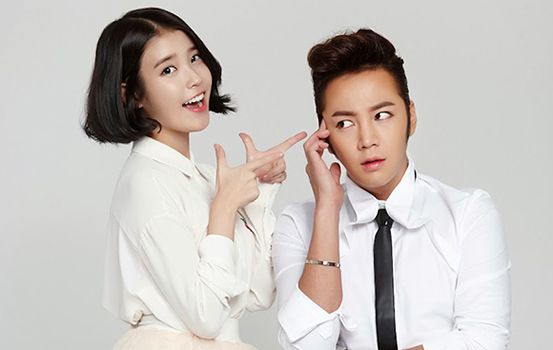
Jang Geun-seok has had a bad run lately, hasn’t he? With Pretty Man now added to the list, his last three projects have been ratings disasters—with a maybe-kinda-sorta exception for Love Rain, which flopped domestically but found commercial success in Japan. To say I had any expectations for Pretty Man would be an outright lie, but I had at least hoped that it’d be a return to form for an actor who’s proven himself capable when it comes to zany romantic comedies.
But it wasn’t. In fact, I’m not even really sure what it was or what it was supposed to be. There were elements of a cute show here, with a love triangle made of fresh young faces and a wackiness in tone that belied the manhwa source material it drew inspiration from. I got the feeling that Pretty Man wanted very much to be a fun, silly, enjoyable little show.
But it wasn’t. Or maybe it wasn’t really aiming for that after all, because the tone could swing so wildly from slapstick hilarity to These Problems Really Matter in the blink of an eye—and maybe those problems could’ve actually mattered had they been grounded in characters rather than caricatures. As it stood, we had a gigolo gold-digger for a hero tasked with seducing ten successful women by a mysterious benefactor with her own hidden agenda, and an “average” heroine (played by IU) who didn’t seem to have a grasp on the concept of self-worth when she only had eyes for Ma-te. And I had the hope that maybe, just maybe, the show would be about her transformation as well as his.
But it wasn’t. Instead it felt like the show was chained to the seduction challenge posed to Ma-te, since the later introductions of his targets/bachelorettes became more like the show was ticking off a checklist it didn’t actually need to adhere to—after all, the challenge itself was arbitrary. Why ten exactly? Why did it really matter to Yoo-ra that Ma-te prove himself by seducing rich women when he’d already grown past the point of needing a sugar momma’s money by becoming a capable businessman? Wouldn’t the show want to be about growth and change despite the odds, without Ma-te getting a free pass because of a late-game birth secret?
We’ll never know the answers to the half-baked questions this show attempted to raise, which wouldn’t have been such a chief offense had it gone about asking them in a way that was less soul-suckingly boring. Jang Geun-seok’s haircut alone garnered more press than the show ever did—though I wonder why they didn’t capitalize on that by showing the four-years-in-the-making event on camera. Were they afraid such a blatant cry for attention would diminish their otherwise sterling reputation for artistic integrity?
Truth or Truth: Pretty Man wins for finding an inventive way to incorporate camping gear product placement by having Lee Jang-woo live in a tent most of the show. Or, it was just a sixteen-hour sacrificial ritual to the God of DROPTOP.
You From Another Star
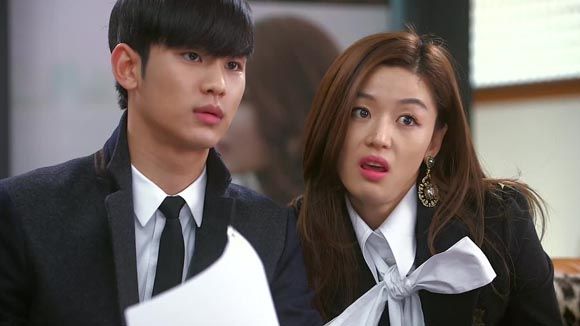
Now here’s a trend I’m surprised didn’t take off to inspire a year’s worth of unofficial adaptations, though I guess when you come up with such a novel concept and do it so well—while also filling your cast with the most A+ of A-list celebrities—even the most devious would-be copycats would recognize a losing game when they saw one.
Maybe it’s because we’ve had our share of forbidden relationships involving otherworldly partners to earn a sniff of derision whenever vampires/ghosts/werewolves/chaebols grace our screens, but Do Min-joon was truly otherworldly—not to mention beautiful, incredibly powerful, and endowed with the gift of deadpan comedic timing. And no matter how much we think we’ve been desensitized by dramaland’s fetish for polar opposite odd couples, pairing a centuries-old alien allergic to human kisses with a sassy Hallyu star proved to be an unprecedented and brilliant(-ly lucrative) move.
We’ve seen so many instances where shows as seemingly pre-calibrated for success and meticulously calculated as You From Another Star have gone horribly awry, so I can’t really pinpoint exactly what this show did so exceedingly right. Even if the creators were banking on the drama to be a hit and engineered it to be impossible-to-miss by casting Jeon Ji-hyun in her first small screen comeback in fourteen years, I doubt that anyone expected the show to become the literal phenomenon it’s known as now.
Not only was it a hit at home and abroad, it set records for being the most expensive drama exported to China in the history of ever. Its impact on a nation with over a billion people was so strong that even The Washington Post published the headline: “Chinese officials debate why China can’t make a soap opera as good as South Korea’s.” Let the full impact of that actually sink in. You From Another Star didn’t just revitalize the overseas Hallyu boom, it practically reinvented it. Any product even flashed across the screen subliminally experienced a meteoric rise in profits—which I totally don’t know from firsthand experience, because it’s not like I used my hard-earned dollars for the same Yves Saint Laurent lipstick shades worn by Cheon Song-yi. Not even close.
Though it’s impossible now to remove Manstar from the ocean of hype still churning around it (“This is why I created the earth in seven days.” -God), a cursory look back would reveal that it wasn’t perfect. The second leads were familiar and well within their respective molds at all times, the main villain had hopelessly simplistic motivations—and considering the kind of villainy Shin Sung-rok would later prove himself capable of, I’m inclined to blame the writing for him serving up a competent but mostly predictable performance as an evil chaebol with a thing for screwing people over. And then murdering them.
Truth or Truth: This show could’ve really done without the “You might be the reincarnated love of my life!” layer. Or, maybe there wouldn’t have been enough fate in their fated-to-be sundae if they’d just met like regular peo—…er, regular humanoids.
Age of Feeling
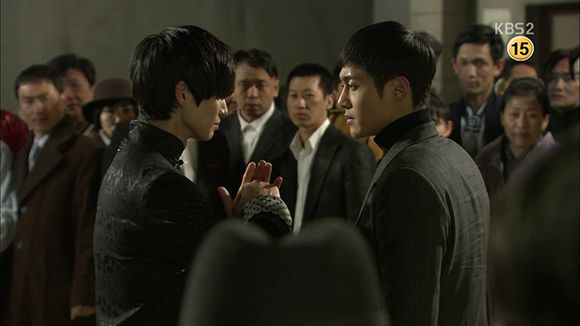
Age of Feeling OST – Im Jae-bum – “Destiny” [ Download ]
Audio clip: Adobe Flash Player (version 9 or above) is required to play this audio clip. Download the latest version here. You also need to have JavaScript enabled in your browser.
Despite the fact that I sustained a major concussion before Age of Feeling’s finale week and spent the weeks that followed in haze of forgetfulness, I vividly remember how promising Age of Fighting started and where it all went so horribly wrong.
I wonder if (but highly doubt) there’s ever been a case where a struggling show has achieved commercial success after a late game writer switch, because it certainly didn’t happen here. Though I’m no stranger to production woes in shows I end up recapping, Age of Feeling took the cake when it couldn’t go a week without making headlines, proving that there is such a thing as bad publicity.
Which isn’t to say that everything would’ve turned out all right had the show not fired its head writer, lost Kim Jae-wook, or exceeded its already lavish production budget, but it certainly might’ve helped. There’s no way to know exactly what happened behind the scenes, but judging by how sudden every drastic change was (and there were SO MANY), it wouldn’t be inaccurate to say that there was more drama happening off screen than there was on it.
The change in writers also marked a departure from established, likable characters we literally never saw or heard from again in order to focus on a broader group of middling characters and two of the worst villains to ever smear expository excrement all over all ten of our screens. You’d think that with enough side characters played by legitimately engaging actors to populate a small village, surely the show would find a way to incorporate them into the broader story, right? I mean, it’s not like they’d eschew the likes of scene-stealing Song Jae-rim in favor of ultimately meaningless subplots revolving around a mythology no one—not even the creators—seemed to understand, right?
Wrong. Oh, so wrong. While I’m eternally thankful that Song Jae-rim was one of the only worthwhile remnants from the first half to stick around for the messy and unfocused second half, that’s one of the few choices the show made for its own benefit. If you’ve got a choice between lobster bisque and a moldy sandwich, who would choose the moldy sandwich? And who, I ask, would be depraved enough to dress those two pieces of stale bread up as Im Soo-hyang and Jin Se-yeon? That’s just wrong, Age of Feeling. Shame on you.
Truth or Truth: Age of Feeling was the most unenjoyable of all the 1930s period dramas to date. Or, that prize still goes to Basketball. (Nice try though.)
Full Sun
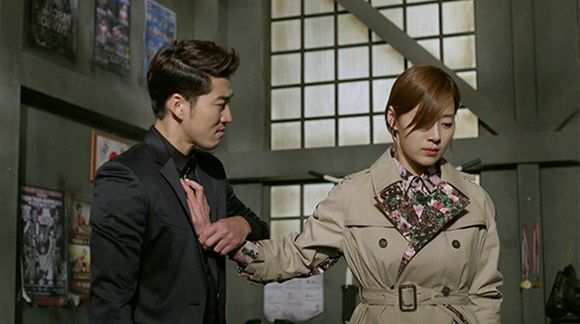
I have fond memories of Full Sun, not only because it reminds me of how much of a procrastinator I am (gummimochi asked me weeks in advance to cover Episode 8, and I waited until the day before to watch the first seven episodes), but because watching it was like comfort food for the optic stems—familiar, but pleasant.
Which isn’t to say the subject matter was all that pleasant, since the show dealt with murder, wrongful imprisonment, revenge, forbidden love, and friends-turned-enemies, but you know how it goes by now. Normally every year carries with it a few old-school melodramas, which is a change from when the market was practically saturated with them. Before game-changing bandwagons like time travel and ghost-seeing arrived on the scene, the freshest idea to be added to the pool of melodramatic plot points was fauxcest, which I’m sure none of us miss.
So in lieu of being especially imaginative or mold-breaking, what makes a good melo good is its level of commitment to the genre and the paaaain of its characters. And it’s there that Full Sun succeeded, though it’s not going to sweep any awards for it. And you know what? That’s okay. It’s not like we’re rewarding a show for underachieving, because we’ve all seen shows that try to do everything and achieve nothing (hay there, Doctor Stranger), but Full Sun actually delivered on its promises. It may not have been groundbreaking, but it was solid.
Yoon Kye-sang was both beautiful to look at and compelling as the wrongfully-accused hero who ends up falling in love with the daughter of the man who ruined his life. Though the players and their motivations got pretty murky by the end, Se-ro’s emotional journey remained clear, making his mixture of seething anger and vulnerability into a standout performance. In that, he wasn’t alone—though veteran supporting actor Jo Jin-woong is awesome in everything, this was his first time being second lead. And he freaking OWNED IT. So take heed, dramaland, and cast him in more things. You won’t be disappointed.
Truth or Truth: Either Son Ho-joon signed on thinking he’d have a role where it would actually matter if all his scenes were suddenly removed. Or, the writer really just screwed the pooch on that one.
Secret Love Affair
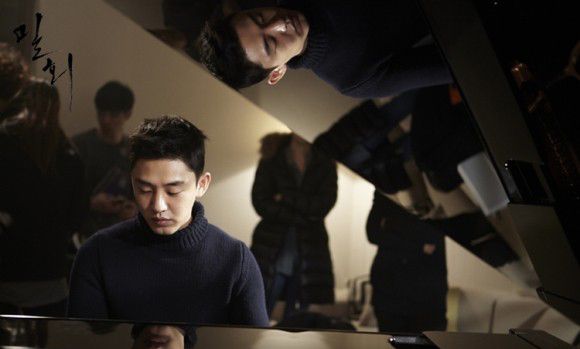
Undoubtedly one of the best dramas of the year, Secret Love Affair marked the second project from the writer/director duo (man, I’m starting to sound like a broken record with all the reunions this year) behind landmark cable ratings hit A Wife’s Credentials, and which also starred Kim Hee-ae as a cheating spouse.
In the interim between the two dramas, the director helmed last year’s fantastic and unforgettable End of the World, which meant that expectations for this project were sky-high, nigh unreachable—and yet all expectations were met. Some were even exceeded. Secret Love Affair might have been a slow burn when compared to dramas from the Big 3, but you just can’t beat that Perfect Drama Trifecta of writing, acting, and directing when you get it. It’s rare these days to have a show that’s as technically flawless as it is artistically resonant, which is an area where cable has shown itself to have a distinct advantage. When you’re not working in the maelstrom of the live-shoot system, good things can happen.
This was the project Yoo Ah-in really needed, not only to show us that he knows his craft, but to also show that he’s not incapable of picking a good project. (He’s had more success in movies, but his drama picks since Sungkyunkwan Scandal haven’t exactly been hits.) This role was also a deviation from his penchant for being the strong quiet type, because that role was filled by Kim Hee-ae. Quite marvelously, in fact.
As the (much) younger man in the illicit love affair, Yoo played an impassioned youth with a gift for playing the piano. What initially started out as a means to mask her corrupt boss’ illegal dealings by nurturing this poor, disenfranchised boy into an educated musician soon became something more. They were brought together by their love of music, resulting in an oft-parodied scene wherein the two play a piano duet together and become so absorbed in the music and each others’ skill that the act of playing becomes a metaphor for sex. Literally. He actually orgasms in the middle of the piece.
The progression of their relationship was well-done on all fronts, achieving a real-world sense of poignancy that’s so often missing in romantic dramas these days. Kim Hee-ae perfectly embodied a woman who’s lived most of her life trapped in a cage of her own making, and one who suddenly finds her entire way of life shaken by a man who sees her for who she really is. Their love changed the both of them, and gave us two satisfying character arcs in the place of one. The repercussions were real, the scope far-reaching, and the personal stakes always compelling. Bravo, Secret Love Affair. Bravo.
Truth or Truth: A drama like this proves its worth not only in its use of sound, but in its use of silence. Or, maybe some scenes had you thinking, “That was pretty neat for someone’s experimental film school project.”
Doctor Stranger
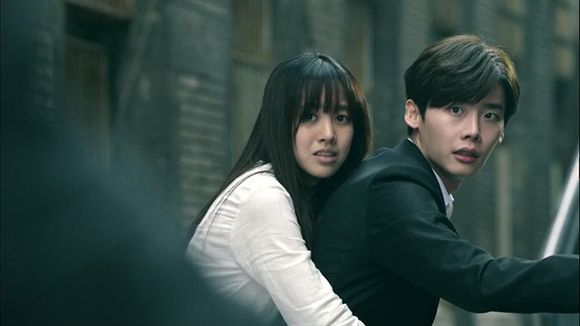
Is there any one thing we can blame this mess on? While no one can say the writing was anything less than a complete disaster, the directing certainly didn’t do the show any favors either. With his last two dramas, PD Jin Hyuk has established a pattern for blowing his wad (of money) too quickly and too early, leaving the show floundering after the first few weeks have passed. One of my biggest gripes with last year’s Master’s Sun was its inconsistency of vision—the first episode was needlessly bombastic and almost at war with the script, featuring nice-looking but ultimately superfluous effects there only to look pretty.
Which would have been all well and good if the visual language had been carried through to the end, so that maybe your previously CG-enhanced ghosts wouldn’t have to switch to using white body paint instead. The directing commits the exact same error here, with the first two episodes taking place in Budapest and featuring all the bells and whistles money could buy. All that was missing was a script and a pool of actual dollars from the budget for the cast to swim in.
To be fair, some loss of quality is to be expected when a show is in the throes of live-shoot, though that was less a problem for Doctor Stranger than the lack of moderation in the directing department and the lack of sense everywhere else. In hindsight, the fact that the show had multiple genre disorder should have been a warning sign—because if you were wondering how a medical action thriller/political melodrama/romantic spy travesty could possibly work, it didn’t.
The ideas it started out with were promising, most notably the hero’s dark past as a medical genius growing up in an oppressive North Korean regime where he was forced to perform horrific human experiments. Though he eventually begins his new life as a doctor in South Korea, he’s unable to forget the love of his life he lost in the North until her doppelgänger suddenly joins his hospital. Hoon’s failing as a character can be blamed on many things, but Lee Jong-seok’s performance would not be one of them. Kang So-ra deserves a mention here too, as long as we’re talking actors who tried their damnedest.
Speaking of which, Jin Se-yeon’s character was an absolute disaster on every front, the least of which was acting (pause for surprise), since it honestly seemed like the writer had no idea who she wanted Jae-hee to be. Was she Hoon’s true love returned to him as a spy after learning how to be a doctor in two short years, or a coincidental lookalike? I’m not against a good mystery if it’s teased out correctly, but the arbitrary outcome made the contradictory clues and groundwork ultimately moot. Story of this show’s life.
Truth or Truth: Doctor Stranger defied its own internal logic and negated its own setups so often that it had to be a case of self-sabotage. Or, it was all foreplay and no payoff (foreplay not included).
Triangle
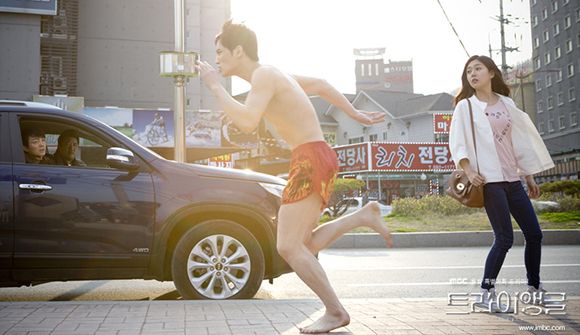
Despite being set in the present day, there was a strangely dated feel to Triangle, like it didn’t quite belong. Part of me wonders if that one-of-these-things-is-not-like-the-other quality was due in part to the reunion of the writer/director duo behind classic megahit All In, though that’s not much of an explanation unless they spent the last decade in a hermetically sealed vault only to emerge for the filming of this drama.
But you have to admit, there’s a lot about Triangle that’s reminiscent of this team’s last casino-centric show, in that it features a hero with a talent for gambling and a graceful, principled heroine working as a dealer. Add two brothers, a birth secret, and some unremarkable side characters to fill all the empty spaces that are bound to crop up when you take what’s essentially a simple story and stretch it out to an overlong twenty-six(!!) episodes.
Granted, the show was originally slated for twenty-four episodes, and was already stretching itself pretty thin. The two episode extension foisted on it not because it was a runaway hit (it was pulling in moderate numbers), but because the drama slated to come after it needed more time was the final nail in the coffin. I can imagine how unfair that must’ve felt to everyone involved when such an extension was neither wanted or needed, especially since scheduling conflicts with a couple of the actors forced the show to sacrifice the ending they’d planned in order to accommodate the changes in the cast.
Out of the three long-lost brothers central to the tale, all bets would’ve likely been placed on veteran actor Lee Beom-soo to carry the bulk of the show’s emotional weight on his capable shoulders. Speculations as to why that didn’t happen are twofold: (1) His character was a failure of conception and had nothing to do—not even a job—for most of the drama, and/or (2) maybe Lee Beom-soo was taking a mental break. Alternatively, maybe being paired with a soggy napkin for most of his scenes brought the caliber of his performance down.
What a triumphant breakout role for idol-actor Jaejooong, though. He became Heo Young-dal, perfectly embodying a childlike sense of naivety and foolhardiness with a more jaded sensibility stemming from years spent as an orphaned street rat. His was a character with hopes and dreams and nothing special to his name—not money, status, or even an education. Young-dal’s vulnerability paired with his daredevil nature was what made him one of the most unexpected character triumphs of the year. Dramaland needs to know that there’s life outside the genius pool.
Truth or Truth: If the show gave us nothing else, it at least gave us Jaejoong’s first true breakout performance, which was worth its weight in gold. Or, you don’t like puppies, kittens, and freedom.
Fated To Love You
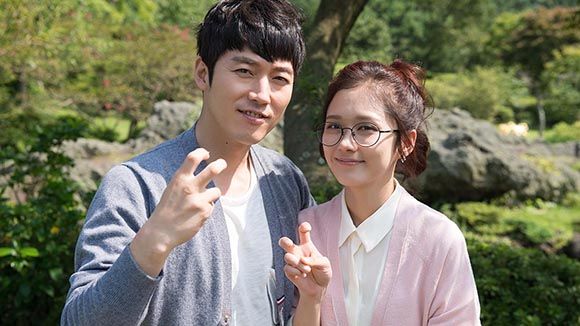
Fated To Love You OST – Ailee – “잠시 안녕처럼 (Goodbye My Love)” [ Download ]
Audio clip: Adobe Flash Player (version 9 or above) is required to play this audio clip. Download the latest version here. You also need to have JavaScript enabled in your browser.
Hands down, this was my most anticipated drama of the year. Back in the days where we had to walk fifteen miles to the nearest underground streaming site, every episode was split into no less than six parts and accessible only through a web browser (you darn kids have it so easy now with your glass rectangles and moving picture shows). The original Taiwanese version of Fated To Love You was reaching unprecedented ratings at home and a surprising amount of popularity abroad in a world that was still fairly new to streaming subs, and transcended linguistic and cultural barriers to become the crack drama to end all crack dramas. It was cheesy, it was soapy, it was so far from perfect that it didn’t even know how to spell it, but it’ll always hold a special place in my heart.
So when this year’s Korean adaptation was announced, I was surprisingly unperturbed by the whole idea, unlike the usual instaboycott reaction fans of any original might have to news of a revamp. Looking back, I think I was just excited at the prospect of a new audience getting hooked on a flashier, prettier, and less-off-puttingly-wacky version of a story I enjoyed so much. I wasn’t quite sure how the story of a rich man marrying the poor and simplistically naive girl he accidentally knocks up would stand the test of time, or how this adaptation would handle the sometimes-wild mood swings the original had, where it could go straight from a slapstick joke to an abortion clinic, then back to slapstick again. How did this Fated To Love You solve that problem? Let me answer that question with another question: Did it?
This is one of those shows that’s a bit painful to look back on, because there’s just as much good to recommend as there are qualifiers to go with it. If the show was only its first half, I would proudly say I loved it, from the drug-induced night of conception to the snails haunting our hero’s every step—it was everything good about romantic comedies and more. It managed to be both gut-bustingly hilarious and tearfully heartfelt, with masterful comedic and dramatic performances by Jang Hyuk and Jang Nara, in their first reunion on the small screen since Successful Story of a Bright Girl (in the year of our lord 2002).
As Lee Gun, a descendant of royalty and sole inheritor of his father’s-grandfather’s-great-great-grandfather’s looks and fortune, Jang Hyuk was absolutely perfect. There’s really not another word that can adequately sum up what a treat his performance was on every conceivable level—and yes, that even includes his uncontrollable hair and maniacal laugh. The level of commitment and energy he poured into the role was unparalleled, but well-matched by the more subdued performance by Jang Nara. In anyone else’s hands Mi-young would’ve been considered a pox upon women’s suffrage, but in her hands, Mi-young mirrored the post-it girl in all of us—which isn’t to say we’re all secretly doormats, only that learning how and when to just say “No” is a universal part of the human experience. And I really liked how her character confronted that in as grounded a way as an unexpectedly-pregnant-and-suddenly-married woman could manage.
But then there’s the second half, which derailed most of what the first accomplished through a needless amnesia plot and possibly the most infuriating act of noble idiocy I’ve ever witnessed. Picking it apart piece by piece would take too long when it’s easier to just reject it wholesale, and I’d honestly prefer to just stick my head in the sand and remember the good times. If he so wishes, Jang Hyuk can pay restitution by starring in another romantic comedy. Just saying.
Truth or Truth: Gun’s actions were completely justified by his fear of succumbing to his genetic disease/Melodramatic’s Syndrome. Or, the show actually thought our couple needed the time apart in order to… do… stuff.
It’s Okay, It’s Love
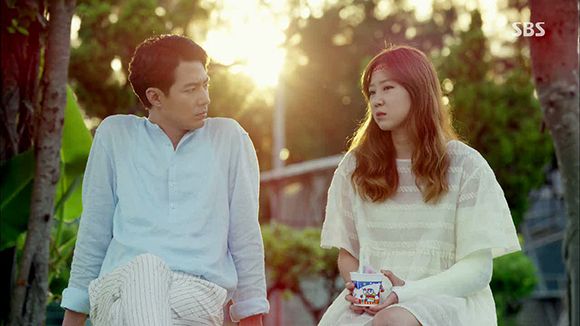
I find polarizing shows really interesting when on the outside looking in, because on the one hand, when a show inspires intense discussions and debate rather than just pleasing everyone or fading into the background, it’s likely accomplished something. (Though I’d argue that pleasing everyone is more difficult than pissing off a few.) On the other hand, It’s Okay, It’s Love arrived on the scene as a pre-packaged pot stirrer practically overstuffed with self-importance, or as PD Kim Kyu-tae put it in an interview, “I think It’s Okay, It’s Love is a necessary drama.” He later added that as long as he balanced the lighter romcom elements with the more conventional melodramatic ones, the result would be “close to perfect.”
There was a feeling at certain points that the directing seemed to be at war with the script, which isn’t something I would’ve initially expected from a team on its third project together. And while writer Noh Hee-kyung has wowed me in the past, each new drama since Padam Padam has somehow felt more emotionally disconnected than the last, despite the bevy of real feelings playing out in any given scene. This was especially the case in It’s Okay, where the goings-on of a psychologically disturbed hero and his girlfriend/psychiatrist were presented in the drama equivalent of a fishbowl. We could look without touching and think without feeling. Best of no worlds.
And while the director learned to ease off a little from grinding the camera lens into his actors’ faces, he found a new way to make sure we all recognized what a special snowflake he was by juxtaposing any moment that got too melodramatic with happy-poppy-fun-time music. Some of the best movies in history have used unusual music choices to punctuate some of the most serious of scenes, but it’d be a mistake to think that’s a formula that always works. At least for me, it was actively frustrating to have a musical record scratch cut in juuust when I was starting to get emotionally involved in any given scene. It left me bewildered more times than I can count, because emotional investment is the whole point—why would you undermine that on purpose? And if that wasn’t the aim, then what was?
Jo In-sung put in a commendable performance as an obsessive compulsive celebrity author (and DJ, and property owner) with a worldview that somehow managed to be both jaded and naive. He was the outsider looking in when it came to human emotions, though he seemed to have a better grasp on them than the spitfire Gong Hyo-jin, despite the fact that human emotions were supposed to be her job. I’ll confess to liking parts of their romance, though not necessarily how her phobia of sex was cured by having sex. Was this dramaland’s first case of a hero with magical unmentionables? Should we consider that a milestone or a cause for concern?
Truth or Truth: It’s Okay, It’s Love wins points for tackling the taboo subject of mental illness with sensitivity and restraint. Or, it was just okay at it.
Surplus Princess
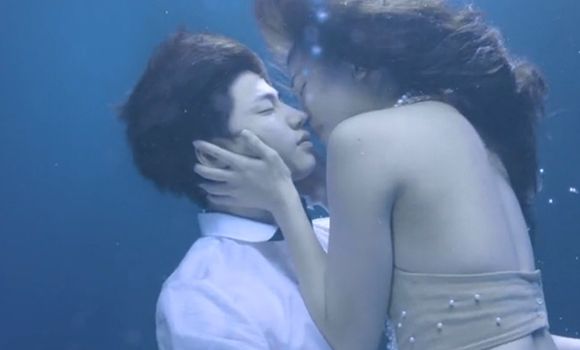
I don’t normally gravitate to romantic comedies as a genre, and will admit here and now that I probably wouldn’t have seen this show had I not been itching to see more Song Jae-rim after Age of Feeling. And just in time, too—I’d started to worry that I was some freak of nature who couldn’t enjoy a simple, bubbly show like a normal well-adjusted person and that I was doomed to a life of melodramas forevermore.
Then Surplus Princess came along, and I fell head over heels in love with the world it created and the characters who populated it (minus the obligatorily awful second lead). For being so lighthearted in tone and silly, the show had an amazing sense of humor it exploited at every opportunity possible. It had its finger on the pulse of common issues plaguing young people—like unemployment—and used its social awareness to inject poignancy and real-world meaning into a narrative that could’ve just as easily spent all ten episodes wading in the shallow end.
What I ended up loving most about the show was its level of commitment to all things big or small in its insulated, lived-in little world, to the point where it could sell us on a mermaid living in the Han river with an addiction to smart phones (which she kept in a waterproof case). It could sell us on a witch with a potion to make her human for a hundred days, and his big ole teddy bear heart. The only thing it failed to sell me on was the ending, though I can only be so upset when the drama had to cobble together a finale after four episodes were cut.
But I’ll always have fond memories of Surplus Princess despite the romantic conclusion, even if its short tenure on the airwaves is lamentable. It had the kind of laughs that were good for the soul, and a cast of characters that looked like they were having a blast in every scene. The shows that leave the strongest impressions don’t always have to be the ones that reach down into our souls and fester there—sometimes they can be the ones that simply remind us to smile.
Truth or Truth: Out of all the hilarious visual gags, Witch Ahn streaking across the beach as a merman with a fish upper body was hands-down the funniest. Or, you can choose your own adventure.
Three Musketeers
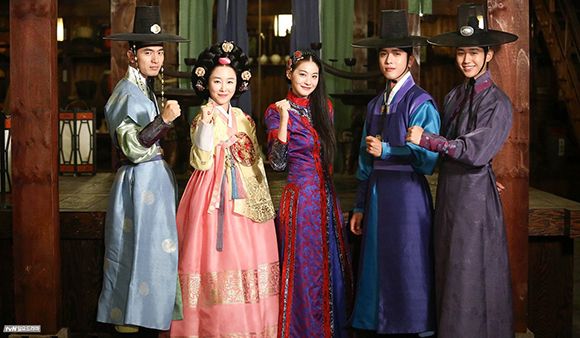
Touted as the first season out of three planned for cable network tvN, Three Musketeers had all the makings of a hit before even making it to the airwaves—what with the requisite idol cast member, millions of dollars, the director/writer duo behind previous network hits like Nine: Nine Time Travels and Queen In-hyun’s Man, not to mention the whole business regarding the famous and unmistakable source material serving as this adaptation’s foundation.
The idea of moving the events of Alexandre Dumas’ tale of brotherhood and adventure to one of the most tumultuous periods in Korea’s history—one that would mark the end of an independent and autonomous Joseon at the hands of the Qing Empire during the second Manchu invasion of 1636—was well-conceived, in that it allowed the show to play fast and loose with certain historical details without throwing all semblance of its sageukness out the window.
As evidenced by Empress Ki’s startling popularity and the rising trend of fusion sageuks in general, historical accuracy isn’t the barometer it used to be when it comes to telling stories involving well-known (and well-worn) royals, so it comes down to how believable the deviations are made out to be. In this case, Prince Sohyeon (the Aramis of this retelling) had more than enough reason to do most of his gallivanting outside the palace walls, considering that he and his father were only installed in the palace after a coup.
So it was fair that Sohyeon preferred life on the outside rather than miring himself in a political subplot which started out decently enough before devolving into an unfocused mess dependent on the machinations of a mustachioed and way-too-enamored-with-the-sound-of-his-own-voice villain and Sohyeon’s vengeful first love. Which would have been fine, really, if only their motivations hadn’t stopped making sense somewhere around the eight hour mark.
The show had a good mystery going when it came to the initial parting of Prince Sohyeon and the show’s resident femme fatale—which involved murder, tears, and a suicide command (in that order, no less)—and while it answered those questions adequately, it didn’t seem to know what to do with itself in the aftermath. When your villains stop making sense, the story inevitably suffers, and that’s when people start teleporting for the sake of dramatic timing and random arrows start flying because script.
At the end of the day though, it was an entertaining romp and a breakthrough performance for Jung Yong-hwa. He may not be winning a daesang anytime soon, but his earnestness shined through in a role which called on him to be young, foolhardy—and above all, likable. Luckily he was all of those things, and then a little more. Too bad we saw the last of his bromance with Lee Jin-wook and the other musketeers now that plans for future seasons have gone the way of the dodo. Maybe for the better.
Truth or Truth: Prince Sohyeon’s air of mystique and emotional unavailability was completely intentional and the result of a fine-tuned performance by Lee Jin-wook. Or, maybe he was a little too unavailable.
Liar Game
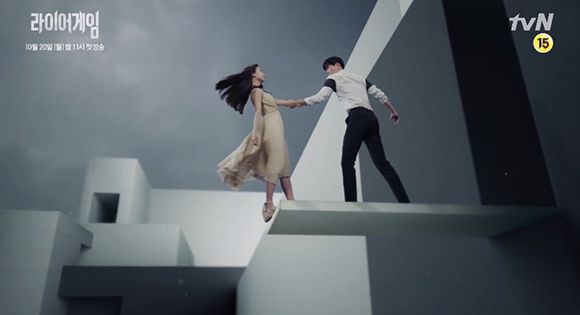
Last but certainly not least (spoiler alert: it’s actually the best) is tvN’s Liar Game, which may not have earned high enough ratings to be officially dubbed a sleeper hit, but garnered enough critical acclaim and buzz here and abroad to be considered a home run for everyone involved. It wasn’t just a drama. It was an experience. Cheesy? Maybe. True? Definitely.
Based on a Japanese drama of the same name, Liar Game boasted one of the most intriguing premises of the year and the kind of follow-through that would make any lover of good storytelling go weak in the knees. Starring Kim So-eun as a kindhearted but financially struggling girl who suddenly finds herself a contestant of a sinister reality show which pits contestants against each other in a game of lies, brains, and betrayal—but for a grand prize of ten million life-changing dollars that even she can’t refuse.
It’s when she employs the help of master swindler and alarmingly handsome grumpycat Lee Sang-yoon that the story shifts into high gear, as he becomes her guardian angel and guide into a world of deceit she knows very little of. Through her, the drama posed relevant and deeply resonant questions about trust and virtue, and in doing so it challenged the status quo where cynicism is considered practical while optimism is often sneered at.
They faced a mutual enemy in the form of Shin Sung-rok, who gave us a truly chilling and unforgettable performance as Kang Do-young, a Mephistophelian game show host with an uncanny ability to see into people’s souls and use them in whatever way he saw fit. Less of a man and more like a force of nature, Do-young pursued his goals with the sort of one-mindedness that could only come from someone unburdened by any semblance of morality. If he and Ha Woo-jin were evenly matched in wits, Do-young’s inner emptiness gave him a distinct advantage when it came to our human lie detector of a hero. How can you tell someone is lying if they’ve removed—or had removed for them—what traditionally makes us, well, us?
Truth or Truth: Liar Game was the best drama of the year. Or, it was the greatest drama of the year. #sixseasonsandamovie
THE WHOLE TRUTH AND NOTHING BUT
It’s hard to believe that this is already my third time doing this, because it feels like I just finished writing last year’s review. No, really—about three months of my life were erased by that brain injury, which marked an epoch in my life that will now always be fondly tied to Dramabeans, and less fondly so to Age of Feeling.
Special thanks to javabeans and girlfriday for their encouragement and support over the years. And to gummimochi—you are the lighthouse to my stormy sea, and if you were ever unjustly murdered, know that I would avenge your death.
To the Beanies, thank you for another wonderful year of lively discussion and group fanning sessions. Thank you for the love rain when I needed it most. You guys are awesome.
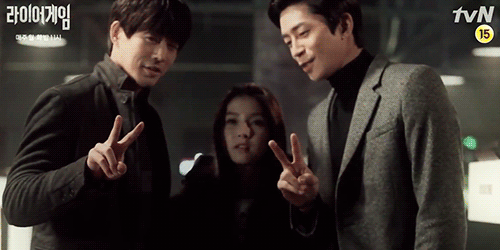
RELATED POSTS
- 2014 Year in Review, Part 2: Stocking stuffers for the drama addict (gummimochi’s review)
- 2014 Year in Review, Part 1: Omg is it that time of year already? (javabeans’ review)
- 2014 Beanie Awards: Vote for your favorite dramas of the year
- Santa presents: Things I Learned from Dramaland
- 2013 Year In Review, Part 5: 2013 Editors’ Picks
- 2013 Year In Review, Part 4: Gonna find out who’s naughty or nice? (girlfriday’s review)
- 2013 Year In Review, Part 3: A Year in Compliment Sandwiches? (HeadsNo2’s review)
- 2013 Year In Review, Part 2: I Watched for You (gummimochi’s review)
- 2013 Year In Review, Part 1: Cheers to Dramaland 2013? (javabeans’ review)
- 2013 Beanie Awards: Vote for your favorite dramas of the year
Tags: 1 show to rule them all, Age of Feeling, Doctor Stranger, Fated To Love You, featured, Full Sun, It's Okay It's Love, Liar Game, Pretty Man, Secret Love Affair, Surplus Princess, Three Musketeers, Triangle, year in review, year in review 2014, You From Another Star
 Interview with Kim Yoo-jung
Interview with Kim Yoo-jung Hello Dramabeans series
Hello Dramabeans series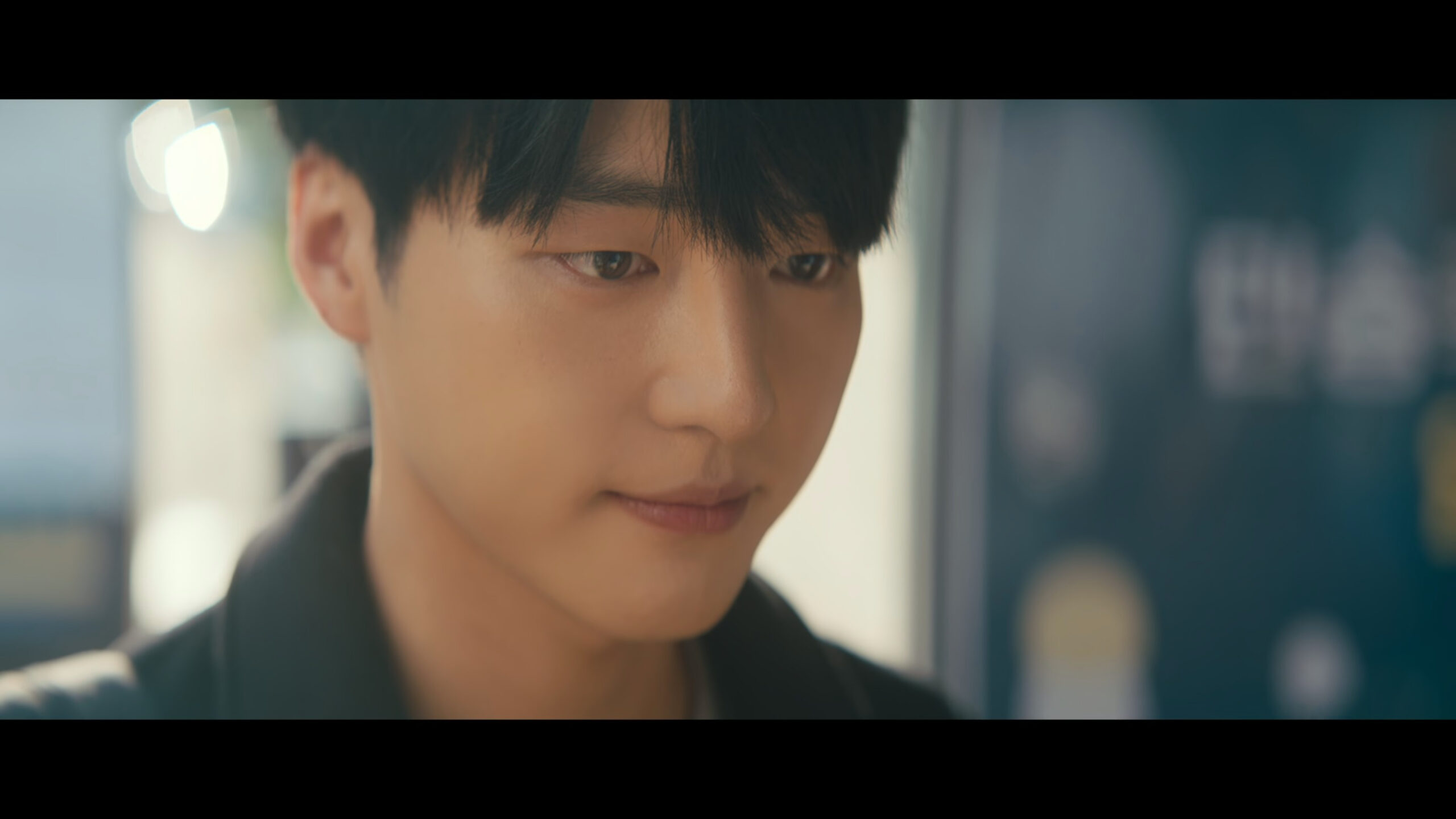
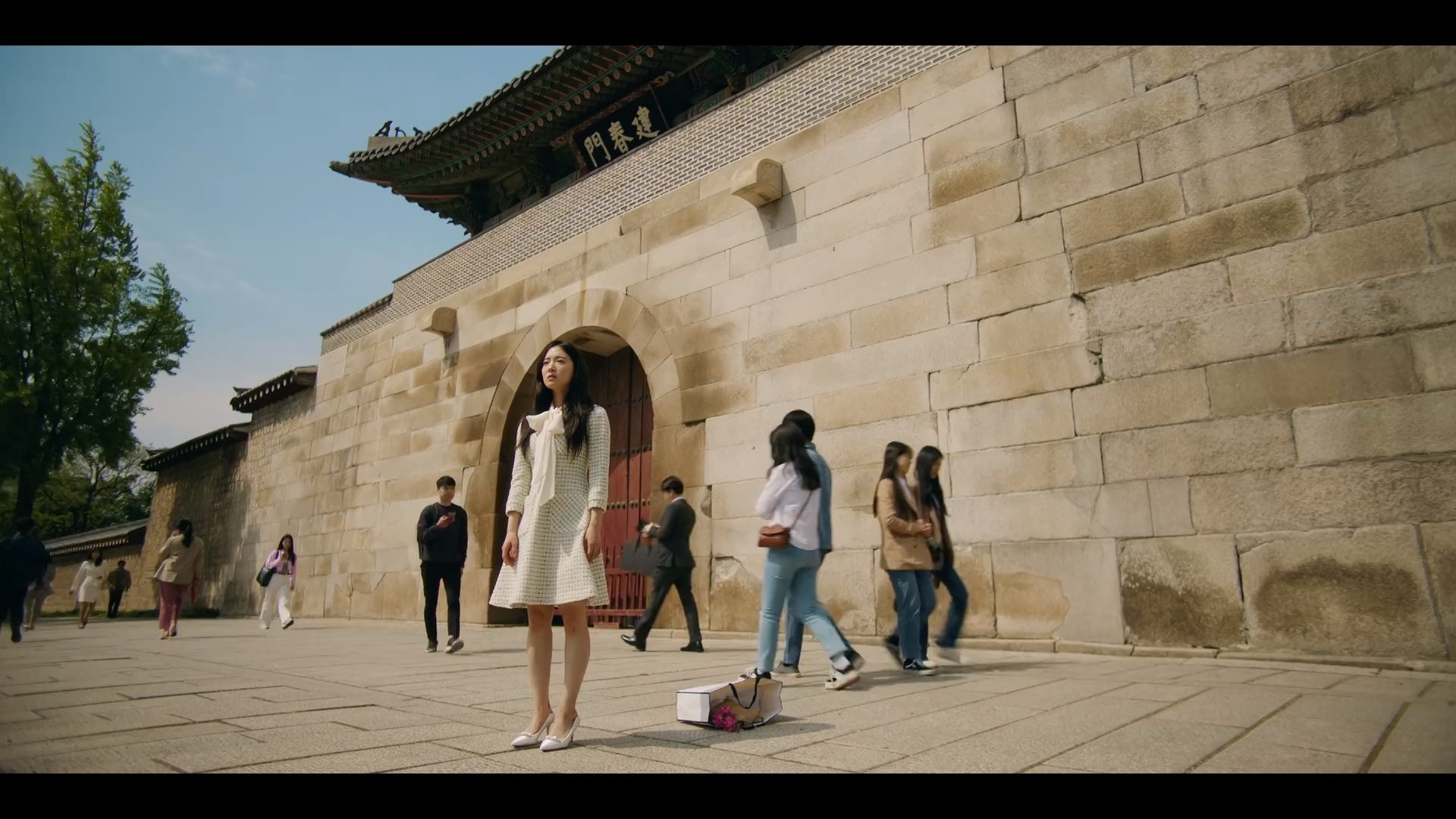


![[2022 Year in Review] The Bean Count](https://www.dramabeans.com/wp-content/uploads/2022/11/beancount_2022.png)

Required fields are marked *
Your email address will not be published. Required fields are marked *
51 Beanfan
December 21, 2014 at 5:08 PM
I forgot to ask about A Wife's Credentials.. I'm NOT big on melodramas, but is this any good? I had not the slightest inclination to watch it (nor Temptation), but after Secret Love Affair, my interest is *a little* piqued, since it's by the same production team and stars Kim Hee-Ae. (Err...does she always star in this sort of drama? SLA was the first drama I'd ever seen her in, and her performance to me was a tour-de-force, but something tells me it might be her usual fall-to role.)
I might set aside my reservations if my trusted sources (you folk) tell me it's a go.
Required fields are marked *
52 Mia
December 21, 2014 at 8:04 PM
Liar Game was the best drama of the year. Can't wait for season 2. Kim Soeun!!!
Required fields are marked *
53 OoO
December 22, 2014 at 4:11 AM
"And to gummimochi—you are the lighthouse to my stormy sea, and if you were ever unjustly murdered, know that I would avenge your death."
If that is not a love note, I don't know what is.
Required fields are marked *
54 korini
December 22, 2014 at 6:42 AM
Happy Holidays and Merry Christmas.
In a bizzare way, dear Heads No2, you are almost always right in your evalutions even from the first episode. I will never forget the recap of the one and only episode of "When a man loves". You forsaw something weird in it that personally I could not, and and you were right in the end. You make me want to put on my list Liar Game. Thank you. Ah, and a correction. The prince in Three Musketeers is not Aramis but Athos. Have a great holiday and an even greater new year.
Required fields are marked *
55 Abbie
December 22, 2014 at 11:15 AM
Not sure about the rest of these, but yes, Liar Game was hands down the GREATEST drama of the year!
I love these end of the year reviews. Glad to read yours, HeadsNo2! Keep up the good work!
Required fields are marked *
56 AnotherFan
December 22, 2014 at 1:53 PM
Such a well written review! I always find the wonderful sense of humor and respectfully thoughfulness to each of the dramas. Thank you so much. I still remember the first (?) time I read your review on Fashion King and how I made a scene at the Corner's by literally spitting my breakfast reading it. Funny how things have turned around for YAI in Secret Love Affair - he has delivered a totally winning performance. I love your review and critique on SLA. It's totally my kind of drama and I am so happy that it gets the respect from you as well. And I can't agree more about JK in FTLY and the drama itself. It was the first and only crack drama from the big-3 for me this year. I am catching up on Liar Game now. Thank you for all the hard work and the wonderful moments to share with us on this drama-verse. Happy holidays
Required fields are marked *
57 tres
September 20, 2016 at 2:04 AM
excellent recap
Required fields are marked *